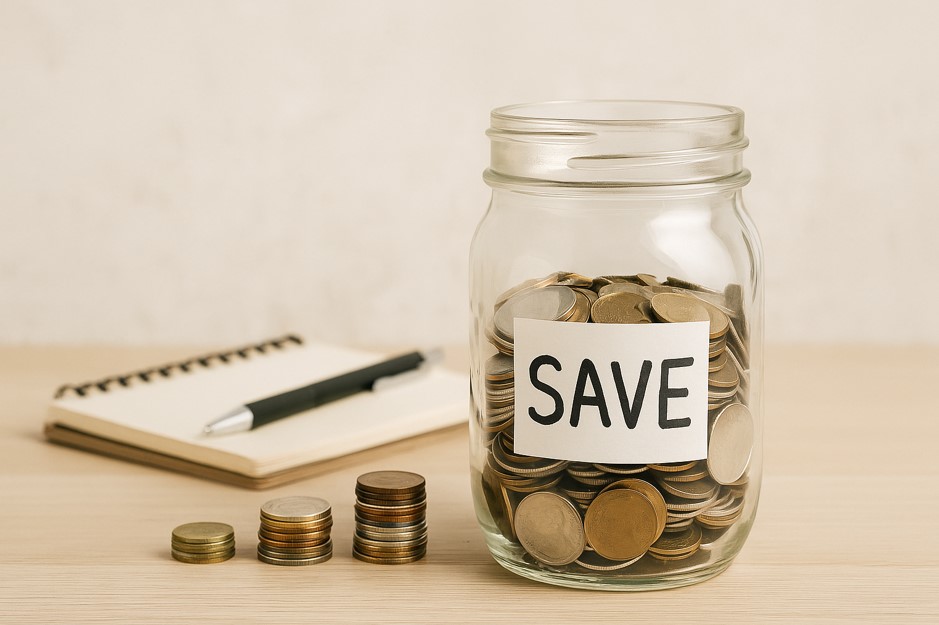When we think of minimalism, the first thing that comes to mind is having less. But it’s really about creating space for yourself and your family, physically and emotionally. We are only on this earth once and it’s about consciously simplifying life to minimize stress and save money. If you want to switch to a minimalist lifestyle, here are 10 great minimalist living ideas.
Minimalism isn’t just about decluttering—it’s about intentional living. Start by reviewing your budget: How to Create a Monthly Budget That Actually Works.
1. Define What Minimalism Means to You
Yes, for me, minimalism may be a plain and simple house that looks almost empty, but for you, it may be more about being conscious of what you buy and consume.
First ask yourself this question: Why do I prefer minimalism, to get out of debt or to live more sustainably? Dear reader, your “Why” here is very important for minimalist living. Because Your Why will guide you and keep you motivated.
2. Organize One Area at a Time
Don’t wear yourself out, there is not another one of you. Don’t act like a superhero and try to organize your entire life in one day. Starting small keeps you motivated and doesn’t tire you out. For example, organize your car this weekend, a drawer, or a shelf in a week.
Be honest and ask yourself these 3 questions:
- Do I use this regularly?
- Does it bring me joy or serve a clear purpose?
- Would I buy this again today?
Use the answers to guide your decluttering decisions.
3. Adopt the One-In, One-Out Rule
Follow simple rules for a minimalist life: After making a joint decision with family members, take out the old one if you are going to change it for any item at home. Small rules like this will reduce the clutter in your home and make you think twice before making a purchase.
These habits will help you put the brakes on purchases such as clothing, kitchen appliances, and technology.
4. Simplify your wardrobe
Be a good minimalist but don’t compromise on quality. Adopt capsule wardrobes of high-quality clothing.
The advantages are:
- Less decision fatigue
- More space in your wardrobe
- Easier packing for traveling
Clothes that look the same and clothes you didn’t wear last year should have no place in your wardrobe. Keep what makes you feel good, fits you well, and reflects your lifestyle.
5. Reduce Digital Clutter
Minimalism should not only be about keeping things and clutter under control. You should also reduce digital clutter. Check out 4 ideas to help you reduce digital clutter below.
- Unsubscribe from newsletters you don’t read
- Delete apps you don’t use
- Organize your desktop and cloud files
- Limit notifications to reduce distractions
Reducing digital minimalism can provide a surprising peace of mind.
6. Prioritize Quality over Quantity
This place is very important: Because; I can tell you from my own experience. Stay away from poor quality cheap products, at first it looks good, you say I bought this sofa very cheaply. But after 1 month, it makes uncomfortable noises, is not ergonomic, and hurts your back. Pay a little more and buy a quality one and you will make a long-term investment.
Minimalism encourages conscious consumption. Before you buy something, ask yourself: “Do I need this? Will it last a long time? Can I borrow or rent it?”
7. Embrace Free Space
Don’t spend your energy frantically trying to fill every gap. Minimalism is not about decorating every wall in the house or filling every shelf.
In minimalism, space is a feature, not a flaw.
8. Create Routines that Support Simplicity
So far we’ve talked about home furnishings, wall decor, and organized shelves. Now it’s time to manage time, here are 3 great tips for using time well:
- Make a weekly meal plan to reduce food waste
- Set a regular cleaning schedule
- Batch tasks like errands or emails
These systems release mental energy and reduce daily depression.
9. Limit Media and Information Consumption
There is a limit to our minds. News and social media content that is followed every day overloads your mind and distracts you.
Try these
- Digital detox days
- Follow fewer but more meaningful accounts
- Read one book at a time rather than switching between several
Be purposeful in your inputs so that you can be purposeful in your life.
10. Practicing Gratitude and Satisfaction
Wanting more will not make you happy. You will experience true happiness when you realize that you can be happy with less.
Keep a gratitude journal, reflect on your progress, and celebrate the intangible aspects of your life: health, relationships, creativity, and peace of mind.
